Notes on a Scandal: Inside Olivia Nuzzi & Ryan Lizza's Very Messy Viral Fallout
"Remember, there are always several sides to a scandal..."
“The Best Work That Anybody Ever Writes Is the Work That Is on the Verge of Embarrassing Him, Always.”
―Arthur Miller
Since this scandal broke, I’ve grappled with how to approach writing about it. The dynamics and the people involved have obviously put me in a very peculiar position. On one hand, I’m obligated to cover political scandals — I’ve committed to transparency even when it’s uncomfortable. On the other, I’m friends with both parties, caught in what’s evolved into a viral media fiasco — at least in certain journalism circles. Callous speculation could cause more harm than good; so, while I can’t say for certain what transpired behind closed doors between Robert Kennedy Jr. and Olivia Nuzzi, I can share my experience with both over the past year.
In wrestling with how to approach this, I revisited 10 months of texts between Olivia and myself. Scrolling through our past threads, I saw that just a few weeks ago I was overwhelmed by a backlog of campaign chapters I hadn’t finished. Olivia gave me sound advice: Only ever write what you would tell someone to their face, and give the version you’d tell a friend at the bar. So, that’s exactly what I’ve done here: unraveled the situation in hindsight hoping to add nuance and context to the seedy tabloid version. And, really, I suppose, to try and make sense of it all for myself.
I certainly didn’t expect “Scorpio rage” as my October surprise, but nothing prepares you for waking up to find your face plastered between a former presidential candidate and his alleged mistress — your former “friend” — in a photo from the dog days of COVID, clad in cutoff shorts and a sunburn.
This was not how I imagined my tabloid debut.
For 12 months, I’ve worked tirelessly to create something unique here: elevated in look, casual in tone, mingling high- and lowbrow elements, designed for women who followed me for pop culture musings. I sought to humanize key players in the election and to cultivate a space for the non-political to engage, offering a more curious and optimistic alternative to stuffy recycled political fodder. If I was going to drag my readers from Hollywood into politics, I wanted it to look good. My aim was to capture the campaign trail with style, in a nod to JFK Jr.'s George Magazine, with one goal in mind: making politics alluring again.
Yet here I was, wedged between ads for toenail fungus and a bizarre curation of photos, from RFK Jr. shirtless at Gold’s Gym to Olivia and Ryan Lizza cuddling in a black-and-white video, flashing a new engagement ring at the camera.
By the second day, news of this “digital flirtation” had already sent shockwaves through the media. Everyone in the industry was talking about it. The revered queen of political profiling, engaged to the Chief Washington Correspondent for Politico, caught in a sexting scandal with one of her presidential subjects. I became an unwitting side character, bombarded with requests for comment from major outlets like Inside Edition and Access Hollywood, all eager for the inside scoop.
The last thing I wanted was to explain this story under bright studio lights on TV. As with every riveting story I cover, my readers come first.
Two weeks ago, I lay fuming in a bathrobe on a hotel bed in Manhattan when Mike called, asking if my online insults were “necessary.” He was referring to the petty revenge tactics I’d indulged in — adding cruel adjectives to descriptions of Olivia Nuzzi, whom I’d only recently likened to a young Meryl Streep.
A week before news of this “digital flirtation” broke, I had published an in-depth interview with Nuzzi promoting her cover story on Trump, ironically titled “The Last of the Real Ones.” The interview aimed to examine what goes into crafting a substantial cover story. Looking at it now, it reads more like what she intended it to be: coded messaging to Bobby Kennedy. Knowing he reads here, her intention might have been more about gaining his attention than attracting new fans — especially if she was blocked during this time, which is very likely.
Did I need to publicly berate someone who hurt me? Probably not. Did I relish the snarky attacks anyway? Yes, for about a week. Without apology or regret.
Admittedly, my intensity in outrage is a signature trait. The beauty — and tragedy — of independent reporting is that you answer solely to your own voice. If you’re enraged and debating whether to call a former friend “big-boned” (or worse), there’s no one to stop you. You think it, type it, hit publish, and apologize later.
Or not.
In my defense, this is all plainly stated in my tagline: “Obsessively invested in quality gossip, powered by typical Scorpio tendencies.” I’m truly the last person you’d want dragged into the center of your political sex scandal. Unregulated expression in independent media is liberating but risky. At least it’s honest and raw — unlike, say, The New York Times.
“I think you’re better than this,” a friend texted.
“I promise you I’m not,” I replied.
Scenes from Summer Outings with Link and Olivia
Despite the nature of my work — often rooted in “quality” gossip — I usually manage to avoid personal drama. I’m not judgmental, don’t hold grudges, hate confrontation, and get along with most everyone. People of varying status trust me because of it, and anonymous sources continue to fuel my coverage. Johnny Depp was one of the first to put his trust in me. When he called that day, he said, “I don’t know you, but based on the words and the music you use, I trust you.” He saw art in my coverage and appreciated that someone in media might ask their audience to consider another side of the story. In his case, he entered that Fairfax courtroom the decided villain. Invested civic journalism helped restore his reputation.
Gossip, though often dismissed as trivial, has a long and respected literary history. Consider Dominick Dunne and Truman Capote — writers who wielded it shrewdly. In its best form, gossip serves as a great human connector, bridging gaps and fostering understanding of people, their lapses, and questionable actions. No one walks away from a juicy story, especially when it involves the humiliation of prominent figures. Public appetite for salacious stories never runs dry. Anonymous sources often provide the only insight into the nuanced corners of a blazing media scandal.
Nuzzigate brought out the worst in me. I spent a year trusting someone who secretly harbored a consuming infatuation with the candidate I was closely covering. How many secrets had she collected and revealed, posing as my friend? I told her things I’d never want repeated to him — or anyone, for that matter. He had become the central figure of my campaign coverage. I wrote about him in ways corporate media refused to, and in turn, his supporters (new and old) loved me for it. The response was inspiring, proof that an independent perspective could indeed shift public opinion of a controversial figure. Week by week, I saw the impact fairer coverage was having.
This dynamic was mutually rewarding: a rising independent journalist, dismissed by mainstream media, covering a “long shot” candidate framed similarly by those same entities. I was one of the few voices positively amplifying his message on a consistent basis, and in that effort, interest in my coverage and his visibility under my lens grew. Yet, I never hesitated to call him out when I felt it necessary. That balance kept people on their toes. Everywhere I went, navigating each new scandal as it sprang, I was asked what I thought about RFK. On different weeks, I’d have different answers.
Meanwhile, in private communications, I trusted a fellow journalist to operate under the same sacred code of confidentiality. I assumed that because she was a seasoned player, she was held to the highest standards. None of my gossip was anything she could print. Never did I suspect she’d twist my words to feed her obsession with him.
But, let’s rewind.
LATE SEPTEMBER, NEW YORK
“I was hoping you’d come,” the man at the front desk greeted us as we walked in. It was a beautiful day in Brooklyn, the first hints of fall edging the air. After spending the morning vintage shopping for Arlo’s first apartment, we stopped for lunch at a popular local spot. “I didn’t want to message and say, ‘come eat here,’ but here you are,” he smiled, leading us to a booth by wide windows where sunlight filtered through brown gingham curtains. He introduced himself as the manager — Jewish and an “undercover conservative.” Complimenting my “Fake News” hat, he seated us in the best corner booth and sent drinks on the house. Later, he introduced us to a young waitress finishing her shift, who whispered that she, too, was an “undercover” Republican.
Between campaign stops, Mike and I were in the city helping our oldest son settle into his new life at culinary school. It felt monumental, especially considering that just three years ago, we couldn’t afford to send a kid to college. Now, we were setting him up in a beautiful building on Wall Street, just a few minutes from his school. This week was meant for me to pause work and savor what any mother would count as an emotional milestone. But I was wound tight — stressed and overly exhausted from the constant travel and daily flood of information.
On top of it all, everywhere I went — elevators, bookstores, cafés — I was being recognized. In one of the country’s most notoriously liberal cities, strangers were suddenly stopping me on street corners to thank me for being a beacon to closeted conservatives, a testament to how starved a portion of the country is for fair representation.
Everything over the past two and a half years has happened so fast. I went from being relatively known within niche circles online to becoming unexpectedly influential in American politics — without the journalism degree or industry networking typically required to break into this field. In a two-week span, shortly after announcing my break from pop culture coverage, I went from spending a weekend at the Kennedy compound to sleeping in the highest tower at Mar-A-Lago. It triggered backlash among passionate new critics and confused the mainstream in a thrilling way. Suddenly, a suburban mom from California was behind the scenes everywhere that mattered, getting top scoops and breaking stories ahead of major outlets. Sources were coming to me over them, and they could never decide how to define me. Taglines bounced between influencer, mommy blogger, radical right-wing conspiracy theorist — whatever they could conjure to diminish what I was doing. On the rare occasions I was mentioned, they spotlighted my income — The Wall Street Journal even put it in the headline to suggest personal profit was the driving force behind my success. This narrative pitted me against traditional journalists, already irritated by my access. The fact that I was earning far more than them sparked jealousy.
They saw me as an unexplainable threat, whereas I saw my success as a collective win: media by the people, for the people, rising into the ranks once reserved for legacy puppets. I represented a new, confusing kind of coverage where independent journalism thrives on the freedom to tell stories unfiltered by corporate interests. Paid by the public. Unlike mainstream reporters constrained by editorial mandates or advertiser pressure, we could tackle controversial topics and figures and expose truths without seeking permission from higher-ups. That autonomy was changing the landscape by fostering a deeper connection with readers, driven by conviction and a passion for truth.
Once my political coverage took off and my online views stretched into the multi millions, they could no longer ignore me. I jumped in and quickly became a valued voice in election coverage, representing women — a vital demographic for both parties.
And then I met Olivia Nuzzi.
From the start, I liked her, though my instinct was to be guarded around someone in her field. That faded quickly. I found her sharp, exceptionally intuitive, charming, and quick-witted. Despite being two very different kinds of writers in two very different arms of media, we had a lot in common. She was also supportive, offering advice and compliments about my writing. We were both curious about each other’s approach. As a veteran in Washington circles, she had a deeper understanding of the political landscape and the power players that populated it — knowledge I wasn’t as well-versed in. Her insight on that front was invaluable.
Mike wasn’t sold on her. He warned me several times not to trust anyone in corporate media. His opinion was that anyone in that field was using me for selfish gain, not friendship. I argued that he was wrong about Olivia. Denise backed me, saying Olivia was her favorite person she’d met on the campaign trail so far. I went with Denise’s intuition.
As the months progressed, we were in communication almost daily, trading gossip and commentary on everything in culture. I trusted her, and she seemed to trust me. Most of what we discussed wasn’t the kind of thing either of us would necessarily put into print, but I appreciated having someone to bounce ideas and theories off of. Both of us encountered wild tips and speculation about all the candidates. Usually, she was the only person I could vet some of these things with.
At first, her interest in RFK was casual, then more obvious, and eventually, borderline obsessive. I chalked it up to a harmless crush — he is striking and charismatic, after all, with the signature Kennedy magnetism baked into his DNA. Women of all breeds adore him; men do too. We both read the book by Maureen Callahan this summer; we both understood that women don’t always fare well in many of the subplots linked to Kennedy men. I figured Olivia was simply enchanted from a reporter's standpoint, by his renegade role in this election, combating industrial complexes with compelling and unrelenting force. He was obviously the most exciting voice in what looked to be a repeated race. He also represents a dying breed of masculinity that seemed to stand in stark contrast to her fiancé, whom she rarely mentioned.
I met Ryan Lizza only once, briefly, at the RNC. During the introduction, I didn’t sense anything was off between them. Ryan was nice; he handed me and Denise passes for the Politico party at The Grill. Olivia complimented his suit when he appeared, noting how “cute” he looked in that color. They kissed upon parting.
Before I posted my recap, Olivia asked me to exclude photos of her and Ryan together. It was then that she mentioned the breakup. She was vague, offering no details about what led to it. I obliged, editing each shot to cut Ryan out, knowing little about what had gone wrong.
There were many eerie details I overlooked in passing. One in particular, which I didn't fully consider until after the scandal, was her mirroring my mystical attachment to the number 666. Back in June, I wrote about how signs and synchronicity pointed me to RFK Jr. The notion of divine purpose was not something I was comfortable admitting, but I wrote about it anyway.
“So, with the owl permanently on my radar, the numbers started next. Suddenly, everywhere I turned, I saw 666. Once again, I documented the trend on Instagram. I hesitated to buy reasonably priced tickets to England because they were $666, which felt like too grim a risk. (In the end, we paid much more.) Thanks to a few unpaid medical bills, my once-high credit score returned to me at a somber 666. I sat and stared at it for a good ten minutes, wondering how.
The number began to jump out at me at supermarket checkouts, on TV, and in emails. The sightings were relentless, shoving 666 into my face until I couldn't escape it. Like the owl, it started to freak me out. I have never been a numbers person, so the sudden frequency of this ominous number in my path was disquieting. As far as I knew, 666 was a satanic emblem. Given the chance, it was not a number I would choose to be followed by.”
Olivia loved this piece. Knowing she entertained omens and signs, it made sense that she would appreciate it. I told her that I was embarrassed to publish it, but I felt it needed to be part of the coverage. She replied appropriately with an Arthur Miller quote: “The best work that anybody ever writes is the work that is on the verge of embarrassing him, always.”
It was the perfect quote to ease my vulnerability.
Weeks later, she started seeing 666 too. She would send photos — several each week — as proof that the number was now stalking her. Our texts became filled with countless images of license plates she encountered on the road bearing the number.
I’m still unsure what to make of it. Of so many things that transpired between us.
Of course, all of the little mysteries make more sense in hindsight. For instance, I noticed her screensaver — once an image of Ryan — had been traded for an arbitrary picture of the moon. At the time, I thought maybe it was a just random preference. I think now it was probably more meaningful — a generic symbol of distant love connected by the most magnetic force in nature. Anyone familiar with RFK’s life philosophies knows nature is a core component. In my interview with her, Olivia revealed nature as her main source of inspiration. It stood out when I read it.
Would you describe yourself as an optimist?
Yes. I think I have become more optimistic over time. I mean, I am more and more cynical about government and institutions of every ilk, but I am more hopeful about the human race.
A romantic?
Yes. The romantic prism through which I view the world is always present in my stories, whether or not I intend for that to be the case. I see everything, whether it’s Donald Trump’s ear or a political movement, connected to nature. I process everything through my sense of what’s beautiful and what’s real and what diverges from my ideas and ideals about beauty and natural order.
Looking back over our texts, I see now how much I missed. She had actually been trying to tip me off in various ways for months — at one point, even outright admitting, in response to some criticism I wrote about him, that she “loved Bobby too much” to agree.
He was her favorite topic. She watched his online moves very closely.
In our recent encounters, she spoke more directly about him, almost on his behalf, letting me know she was more informed about him than I was. During her visit to our rental in Palm Beach, she mentioned that he had flown in on a private plane to avoid tracking while negotiating with Trump at Mar-a-Lago. At the time, it felt like an odd flex, yet subtle enough to avoid seeming like a full-blown power play. I didn’t have the energy to contemplate it further. Mike pointed it out later that night. He noticed that the way she spoke about Bobby had “changed.”
Her judgment by then was clearly clouded by this “crush.” However, I never sensed that she was physically around him, which is why I was so enticing to her. I was around him often. I could offer details about him in various settings around different people, including other (adoring) women, and his wife. She had a hard time believing they were in love. During one conversation, I recall realizing her interest in his marriage verged on something more sinister when she noted seeing Cheryl hook her thumb into Bobby’s belt loop, suggesting attraction between them was alive — concluding they must still be intimately involved. In the fantasy she was weaving, I suspect it was either something she desperately wanted (or needed) to deny.
Women dissecting Bobby and Cheryl’s marriage isn’t unusual, though. In fact, it’s a fairly regular topic — the kind of thing ladies dwell on. With Bobby thrust onto the national radar, everything in his life is under intense scrutiny. Understandably, their union confuses a lot of people because they don’t share the same political views. That disconnect is hard for some to accept. Hardcore supporters resent Cheryl for not backing him as fiercely as they see fit (yet they’ll give Melania a pass for standing in the shadows of MAGA). Olivia definitely felt this way. She insinuated on several occasions that Cheryl didn’t deserve Bobby because she wasn’t supportive of his “mission.”
Her critique there wasn’t unique. The nature of this contempt is rooted in Cheryl Hines’ career. Conservatives have come to adore Bobby, but they loathe the entertainment industry. They resent her for aligning with liberal Hollywood; for caring about her image in the industry more than her husband’s mission. What they fail to consider is that she was already established in her career long before she met Bobby.
Based on everything I’ve observed behind the scenes they appear genuinely in love, happy in each other’s company, and a lot of fun to be around. My family and I have spent ample time with them in intimate settings across the country. Cheryl is always a warm presence at events, easing tension with her down-to-earth nature and aversion to pretensions. She didn’t grow up like Bobby — far from it. Her partnership is perhaps the most humbling aspect about him.
As an old friend of Bobby’s told me last week, “Bobby never wanted or expected Cheryl to step into the role of a politician’s wife. It’s just not her thing. It might bother others, but it doesn’t affect him. They have a lot in common outside of politics.”
Their shared love of family and travel is evident, especially in the photos that hang on the walls in Cape Cod, where Cheryl’s side is seamlessly mixed in with iconic images of the Kennedy family.
Judgments are easily formed with little backstory, and in this case, many overlook that Cheryl Hines’ story is one of resilience. Her success is self-made. Born and raised in Tallahassee, Florida, she grew up poor, sharing a bed with her mother in a trailer until she finished high school. Her father worked as a contractor, while her mother held a job with the Florida Department of Revenue. Despite their parents’ divorce, Cheryl and her three siblings remained incredibly close. After high school, she attended cosmetology school and community college before eventually earning a degree from the University of Central Florida.
Cheryl’s Hollywood journey began when she landed a guest role on Swamp Thing in 1993, sparking a dream that led her to drive from Florida to Los Angeles in a beat-up Toyota Tercel with 130,000 miles on it. However, success didn’t come immediately. To make ends meet, she worked as a bartender at a downtown hotel — the same one where the O. J. Simpson jury was sequestered — and as a personal assistant to Rob Reiner. After five years of struggling in LA without any significant credits, she briefly considered returning to Florida to pursue a career in psychology.
Her breakthrough ultimately came through The Groundlings, the famed improv troupe that launched the careers of talents like Will Ferrell and Melissa McCarthy. Among her peers were future stars like Will Forte of SNL and Oscar Nunez from The Office. During a showcase, a producer from Curb Your Enthusiasm spotted her and thought she’d be perfect for the role of Larry David’s wife — an unknown actress was exactly what David wanted. Cheryl’s audition was entirely improvised, which David later described as having the perfect sense of “condescension.” With only a few prior credits to her name, Cheryl became a Hollywood success story, admired for her talent and reputation. David has referred to her as one of the few people in Hollywood with “no enemies.”
That was before Bobby’s presidential run.
The two met in 2004 at a fundraiser for the Waterkeeper Alliance in Banff, Canada. At the time, both were married, but they reconnected years later at the same ski event. Bobby convinced her to try skiing during that first meeting. Cheryl entered his life amid a scathing and tumultuous divorce; after Mary Kennedy’s suicide, it was Cheryl who stepped in to care for and mother his children. That bond now is evident, as all of his kids adore her. Reading through their sentiments about her on social media, it’s clear they view her as a steady rock in their lives.
During lunch one day on one of the campaign stops, Bobby told me that Cheryl saved him and his kids, explaining that they were “at risk” after their mother’s death and that she was the one who grounded them during immense grief.
On a snowy gondola ride down a mountain in Aspen during New Year’s, Cheryl shared how much adventure Bobby brought into her life, pushing her to try all kinds of crazy things on vacations around the world. At his birthday celebration, she gave a touching toast, expressing her admiration for his quest for thrills. His photo roll is cluttered with images of them exploring exotic locations, looking like teenagers in their excitement. Any time I’ve been with him, he eagerly shares these photos with anyone around, a big smile on his face.
During one of these trips, Cheryl told me something I’ll never forget: She had never seen Bobby be mean to anyone — except for one instance where the person was awful to her.
On another occasion, amid a summer clambake in their backyard in Cape Cod, she complimented his love of people, noting his remarkable stamina in social settings and how he would engage anyone in conversation.
Bobby speaks about her just as sweetly. The first time I met him, he wandered around the house calling her name up a long stairwell. He didn’t know me, but he desperately wanted me to meet her.
People are confused by a marriage with conflicting politics, but what they’re missing is that he respects and admires her for her independence.
On the other side of the simmering scandal stands Olivia Nuzzi. In the days following the initial news, she found herself at a friend’s apartment on the Upper East Side, dodging paparazzi, ignoring calls from tabloids, and remaining silent while being smeared in the press and dissected on social media. Olivia had always believed that a story was like a fire: You could either feed it with new information to keep it alive or starve it until it died. Her goal was to let this story die, which required strategic, rational thinking and a commitment to not reacting emotionally to the media coverage.
As the chaos raged outside, she learned that New York Magazine — where many of the leaks and rumors originated — had hired a high-powered law firm to conduct a “more thorough” review of the situation. Worried that any new information might fuel another round of tabloid frenzy, and concerned that the escalating discourse could hurt her in the magazine’s investigation, she confined her conversations to only her closest friends, mentors, representatives, and her lawyers at News Guild. As the tabloid media’s appetite for “her side” of the story grew, others filled the silence with conjecture, fabricated narratives, and targeted harassment.
In the world of tabloid reporting, the only way to influence the story is to trade their bad information for more salacious claims of your own — what they call “playing ball.” However, Olivia refused. One tabloid reporter complained that she “wouldn’t play ball.” A telling example of this came when a tabloid reached out to her with a false claim that Robert F. Kennedy Jr. had inappropriately grabbed her while hiking. She denied it. A few days later, the same tabloid returned with a new false claim that he had touched a different part of her body. Despite her denials, the tabloid still published the story.
Fact checking email from Olivia Nuzzi in response to a tabloid inquiry obtained exclusively by @Houseinhabit
Whoever was leaking “her side” of the story seemed intent on keeping the controversy alive with a “he said, she said” dynamic that Olivia wanted no part of. Her efforts to shut down the false narratives were largely unsuccessful. From the beginning, she believed the framing of the story was incorrect and that each subsequent narrative was equally misleading. While she had always recognized the bias within the press, she now saw that the bias toward conflict was the most insidious of all. When the truth is mundane, the more dramatic, fabricated story prevails.
The simple truth was that it was nothing more than a flirtation. Sometimes they talked; sometimes they didn’t. Sometimes they flirted; sometimes they didn’t. It wasn’t an affair, it wasn’t a relationship, and it was absolutely never physical. They met only once, in a purely professional setting. Kennedy never made any romantic advances toward her, nor did he assault her, as some falsely suggested. He hadn’t “love-bombed” her either. Whatever that means. In her eyes, he had done nothing wrong. She never reported on him again, never used him as a source, and was never asked to. In her workplace, the subject never came up in a way that required her to make any formal disclosure.
“I think it was a wake-up call for her,” a source told me. “She always knew the press was biased, but the bias toward conflict was the most insidious. When the truth isn’t dramatic enough, the truth doesn’t prevail.”
As the crisis escalated, Olivia took long walks late at night down Park Avenue and along the East River, knowing she wouldn’t be photographed. She was inundated — privately — by colleagues in the media offering their support. When she replied, it was with a row of heart emojis. Though she maintained her sense of humor, the toll this ordeal was taking became apparent to the few friends who saw her. She couldn’t sleep or eat, deeply upset by the media coverage dragging others into the story — the other party, his wife, a relative whose wedding was mentioned in the coverage, the ex-wife of her ex-partner, and even her brother, whose suburban home was staked out by paparazzi.
What haunted Olivia most was the pain she felt she had caused others and the betrayals by people she had trusted. A longtime friend broke the story, and her magazine legitimized it, making it sound far worse than it was. Then there was the matter of who had engineered the scandal in the first place.
While I wrestled with my own feelings of betrayal, Olivia was navigating a crisis in an industry eager to devour her. She believed that whoever brought the information to her employer had also tipped off the press. It was a shrewd move — bringing the story to the tabloids would have made it easy to dismiss, but offering it to legitimate media outlets made it highly publishable. Anonymous emails with tips were sent to media reporters, making it an unavoidable story. Olivia feared that whoever had engineered this scandal wouldn’t stop until she was entirely destroyed. Speculation about the source added to her anxiety as she followed the few clues made public: an IP address in Iowa, a VPN in New York, and a fake name. Meanwhile, rumors came to her about her own life the way rumors had always come to her about people she covered. She heard new false and outlandish claims on an hourly basis. Friends in the media warned of possibly doctored communications circulating. She had no way to know if that was true.
With no other options, Olivia turned to the FBI. Early Thursday morning, as she drove alone through the Ozarks to a hideout, she filed a formal complaint. By Thursday afternoon, in Texas, she was interviewed by the FBI.
Fearful of what might happen when her ex was informed he was the target of an FBI investigation, Olivia obtained a restraining order against him in Washington, D.C. The judge ordered him to stay away from her and her workplace and to stop circulating any hacked, stolen, or doctored materials to the press.
The story has now taken a more personal turn, casting Ryan Lizza, her ex-fiancé, as an unhinged stalker leaking information to ruin her career in hopes of winning her back. Olivia’s camp portrays him as a vengeful ex determined to see her downfall. More startling are allegations that Lizza called RFK Jr. — what’s been reported as a “heated phone call” after the discovery of leaked information.
“These two have a history of this kind of thing,” a D.C. source confided during lunch a few weeks ago. “They’ve broken up and gotten back together more times than anyone can count. But this time, they’re dragging the entire country through their mess.”
Once a D.C. power couple, their reputations seem mutually damaged by this.
There were plenty of sources who came forward to criticize both Ryan and Olivia, and the manner in which she, especially, conducts her interviews. I was hard-pressed to find sources willing to defend either of them. Most of the people I spoke to shared stories about their own experiences with her where she, according to them, cunningly sidestepped traditional ethics.
After my first article, I was struck by how many female journalists reached out via text and email, thanking me for addressing what they saw as an open secret: personal entanglements affecting professional careers. They saw Olivia’s actions as a slap in the face to the many female journalists who go out of their way to avoid that stigma.
“No one trusts a woman trying to fuck someone’s husband to recap the news,” one source bluntly stated.
“I cannot, for the life of me, see how she thought it was okay to send a presidential candidate naked photos of herself. In what world does a woman in her position find this acceptable?” another asked.
To complicate matters, some sources close to the couple dispute the claims of Ryan aggressively stalking Olivia. They suggest this narrative is highly exaggerated, implemented as a cover to shift focus away from her and Kennedy’s sexting “fling.” According to them, Olivia had been thrilled with wedding plans until January, after Ryan proposed. But after the New Year, her excitement waned. She spent more time on the road, taking long drives under the pretense of clearing her head. On one occasion, she drove 29 hours to the RNC, a behavior that even I, someone who enjoys driving for pleasure, found odd.
Some believe her aim was not to escape a toxic relationship, but to be alone and available for a call or text from RFK, should he spontaneously decide to unblock her. Driving kept her physically moving while mentally locked in on her fixation. I told her once she was the second scariest driver I knew next to RFK. She laughed, and dared me to put it in print. Our interview also touched on the driving.
You might be the only person I know who drives more for pleasure than I do. What is it about driving that speaks to you? Does it clear your mind, or is it about discovery?
It clears my mind. It’s when I feel most American and most free. I also find that when you travel for a campaign, it’s very easy to not have a feel for the country. Zipping in and out of airports, you miss a lot. I recall you thought — correctly, probably — that I was clinically insane for driving from Los Angeles to Milwaukee for the convention (29 hours on paper, which I am proud to say I did in about 25 hours), but I really needed that journey from the desert through the canyons through the mountains to the plains to process the assassination attempt, to feel the enormous complexity of the country through its enormously complex and diverse landscape, and to do so mostly alone. I picked up my friend, the artist Isabelle Brourman, in Colorado about halfway to Milwaukee, and it was on that drive that we hatched the plan for our portraits of Donald Trump — hers with paint, mine with words.
Meanwhile, Olivia employed “unblocking tactics” cleverly, through various emails and phone numbers, usually feeding RFK tips about upcoming hit pieces to “protect” him. She’d warn him about rumors, like the bear story or nanny allegations, manipulating aspects of gossip in the process. On a few occasions, she even used information I shared with her — one example involving an old girlfriend of Bobby’s I had befriended in Palm Beach. I met this woman during an event for him in December, where she regaled me with fabulous tales of the Kennedys growing up. As a teenager, she had been smitten with Bobby Kennedy, describing him as “breathtaking.” She saved his cigarette butts and waited anxiously to hear word of when he’d be back in town. During their first hookup, she confessed to him that she was a virgin. He pulled away and told her not to apologize for it. “He was so sweet, a complete and utter gentleman about it,” she said. “That’s just who he is.”
Years later, they had other encounters as they got older, but this woman only spoke lovingly of him and his respect for women. I relayed some intimate details to Olivia, who I found out later confronted Bobby with a twisted version of the story, designed to scare him into unblocking her, worried that an old flame had turned on him and was planning to speak out against him in the New York Post — another sexual allegation on the way.
This kind of thing happened more than a couple of times. I would share information that would eventually circle back to me. I grew paranoid trying to figure out how, furious that my gossip was leaking and lending itself to sporadically arising hit pieces. More upsetting was the thought that my sources were being exposed and manipulated by someone in my trusted circle. Trust in me was at stake.
Months ago, I confided in Olivia that Bobby had become distant, thankless, and slightly unfriendly toward me — a shift I couldn’t explain. It’s not far-fetched to assume she might have tainted the dynamic between us while I was doing everything on my end to foster honest reporting, and paying thousands of dollars to travel and track his campaign for fair representation along the way. Putting all the pieces together knowing what I do now, it certainly adds up.
As the scandal continues to unfold, I find myself questioning who Olivia really is and how much of her maneuvering was self-invested — was she protecting her career, or satisfying a personal obsession? What, if anything, about her was real? What began as professional ambition spiraled into something far more complicated, affecting her personal life and those around her. I resent being pulled into this situation and having to confront a scandal from the center instead of the sidelines.
I also resent that the week that was supposed to be spent enjoying my son’s New York arrival was overshadowed by this situation.
Plenty of questions still linger. Consider her explosive piece on Biden’s decline and her recent softening for MAGA. Was that genuinely her perspective, or was she motivated by self-interested aims, wanting to align her views with where Bobby’s political path was heading? Is Ryan Lizza truly a crazed and dangerous stalker seeking to harm and shred her reputation, or a man with a broken heart, reeling from the shock of discovering that his fiancée was in love with a candidate in an election she was covering?
New York Magazine stated they found no evidence of bias in her work, but I would challenge that claim as a glaring oversight. Everything she’s put forward warrants intense skepticism, and everything she writes in future should be examined with equal rigor. Many journalists watching this play out share my perspective.
Questionable ethics have long shadowed Olivia’s record. As reported by Nikki Schwab, in the past, she’s faced significant criticism during other high-profile assignments, raising concerns about her professionalism. In 2020, while serving as a pool reporter for Vice President Mike Pence’s campaign, she repeatedly strayed from her role, which required providing objective and factual updates. Instead, she used her pool reports for speculative commentary, even wondering aloud about Pence’s personal regrets in a report titled “existential crisis.” Additionally, she made disparaging remarks about his wife, Karen Pence’s, appearance, and allegedly violated off-the-record agreements by disclosing sensitive security information. A former Pence aide described her as “the most disrespectful person” they had ever worked with, accusing her of using the assignment to mock Pence and his staff in a role meant for objective coverage.
Her disregard for ethical boundaries resurfaced again during Donald Trump’s hush-money trial this year when she was expelled from the courtroom twice for violating strict no-photography rules. Despite warnings, she was caught taking unauthorized photos in the media overflow room, leading to her permanent removal from the trial. Other reporters posted on X that she was seen flirting with a bailiff to avoid a permanent courtroom ban. Notably, she failed to disclose this ban in her subsequent trial reporting, raising further questions about her transparency and ethical conduct. While no legal action was taken, her behavior during both the Pence campaign and Trump trial reflects a troubling pattern of undermining journalistic standards. And this is from someone who lives to bend rules.
As it stands now, the case is an active FBI investigation. Both Ryan and Olivia are currently on leave from their respected media roles, while questions about their ethics and integrity as journalists continue to swirl. Some theories suggest this could be part of a larger, calculated plot driven by Olivia’s “silent quest for fame.”
Oliver Darcy recently pointed out that Olivia was tapped to write a screenplay for AMC about a young journalist breaking away from mainstream media. “Outside of her role at New York Magazine, Nuzzi has two other projects in the works. One of them is a scripted series for AMC Networks (about a young journalist defecting from mainstream media, no less).”
Protective Order Filed by O Nuzzi Against R Lizza
Many insiders predict her days in mainstream outlets are numbered. Once the dust settles, they believe she’ll either end up working for someone like Bari Weiss or go fully independent on platforms like Substack or Beehive.
Frankly, I don’t care where she ends up — I just count it as another sign of the crumbling trust in mainstream media. Surely, the mishap is not helping New York Magazine’s reputation. And surely, majority of my audience are not interested in following her revised career path.
With everything in sharper focus, the scandal has put Olivia’s name on the map while conveniently detracting from Kennedy’s rising popularity post Trump endorsement. I see layers of self-serving motives here.
As for Bobby, I find his recklessness in the matter infuriating. He has so much momentum right now, carving out a legacy he deserves and desires. To engage with a reporter four decades his junior from an outlet that despises him is downright foolish. I find myself scrolling swiftly past his videos about God and morality. While I stand firmly behind and believe in his greater mission, his lapse in judgment is deeply disappointing.
Beyond the potential damage to his reputation, it’s Cheryl Hines who suffers the brunt of this whole mess. She woke up on her birthday this year to the news of another humiliating scandal, right after being dragged through the mud for standing by Bobby after his Trump alignment.
I’ve only had a few instances where I needed to confront Bobby directly to clear up questions or concerns. In every case, I never felt he lied to me. When I asked him about these latest allegations from three unnamed women — who provided no details or evidence in claiming to have had affairs with him — he vehemently denied it, saying, “If I were having affairs with other women, as has been reported, Cheryl would be gone in two seconds flat. She has too much self-respect. That’s one of the reasons I love her.”
The night before the scandal broke, I met Olivia and a friend of hers for dinner at the Odeon. I rushed straight from another event arriving in a tweed blazer, her in a body hugging black skirt. We ordered steaks and exchanged small talk. Just before the check came she leaned in, asking what else I’d heard—fishing for leads on any fresh gossip. I told her I was feeling burned out from the campaign trail and I shared notes from Arizona, playing the role of moderator for Tulsi and Bobby. "Bobby doesn’t seem himself," I told her. “Something about him seems off.”
She shrugged, suggesting he was probably just worn out.
I ended the conversation by admitting that I was losing the “awe factor” around most of these politicians. She glanced at her glass, looked up and me and smiled, “If there’s one thing you can count on, it’s that politicians will always let you down.”
I don’t know if she was talking more to me or herself.


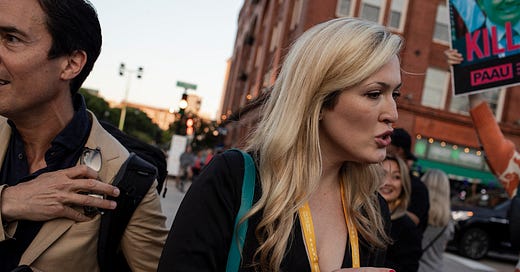



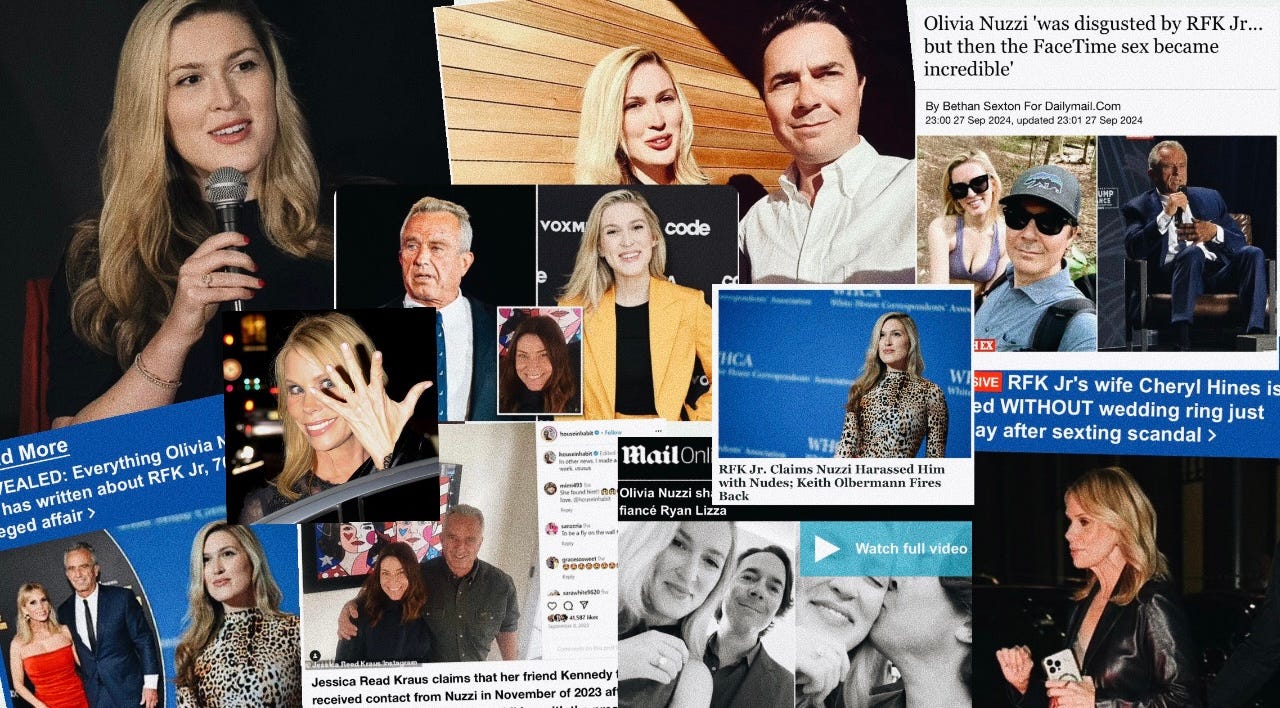
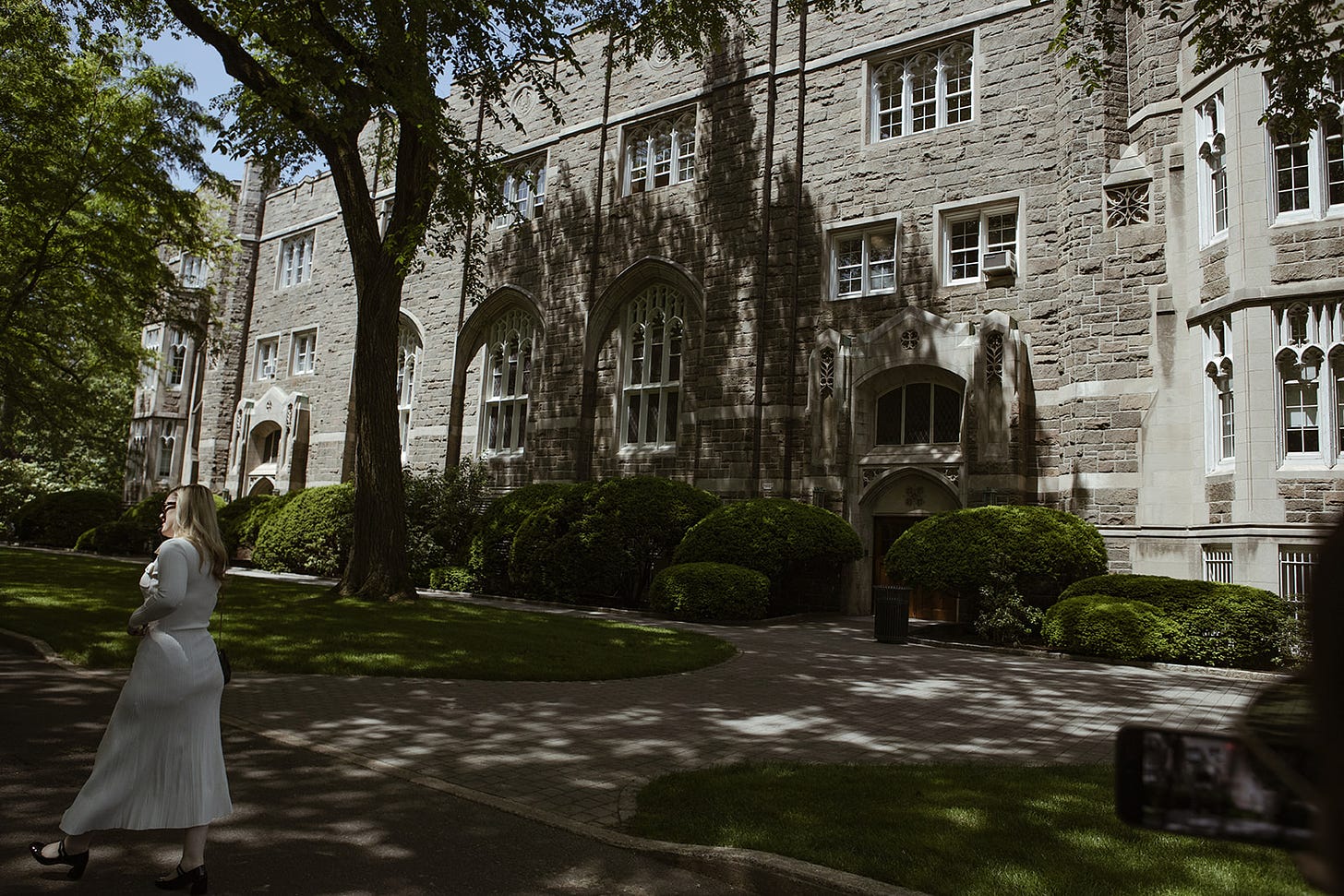
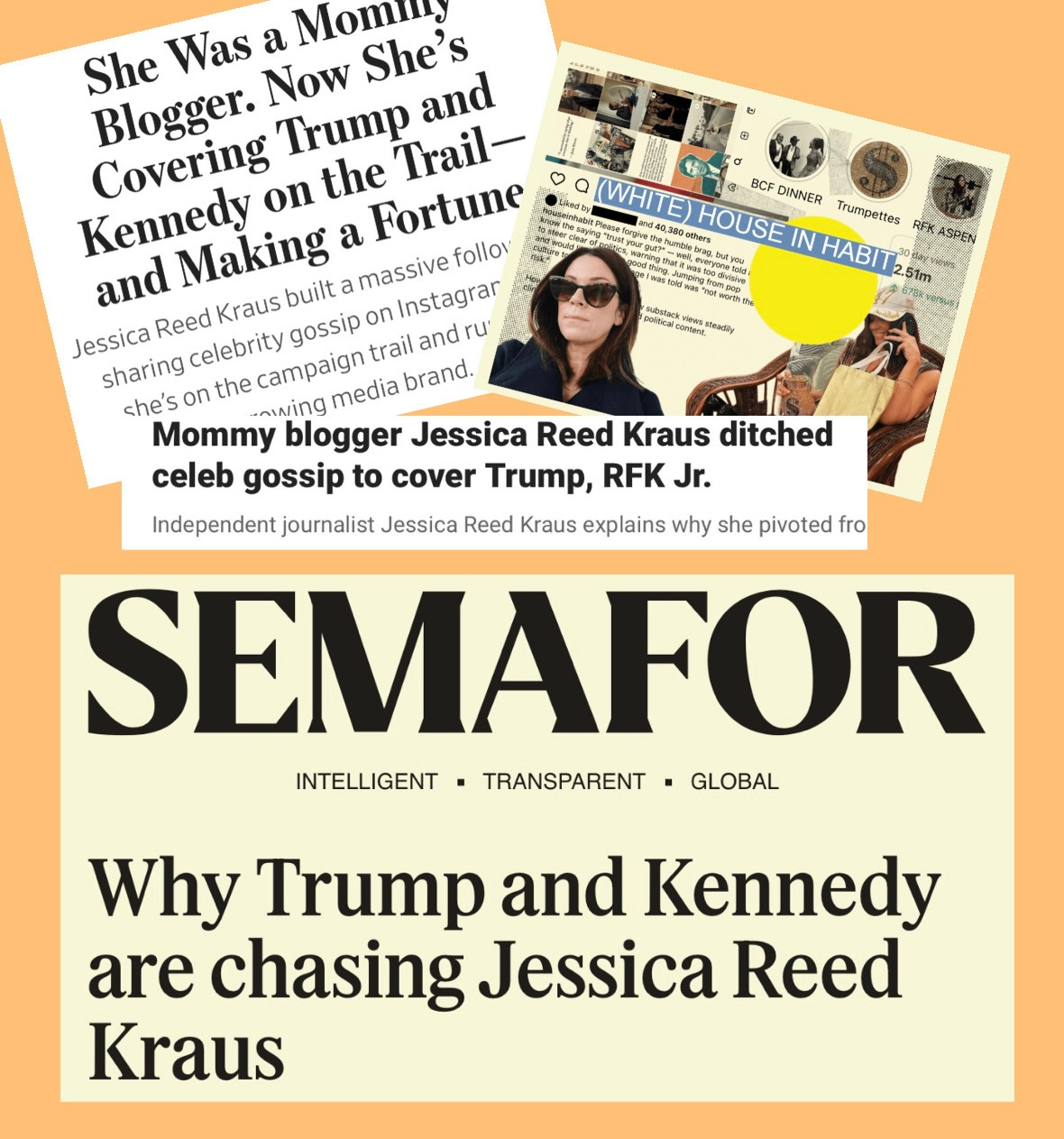
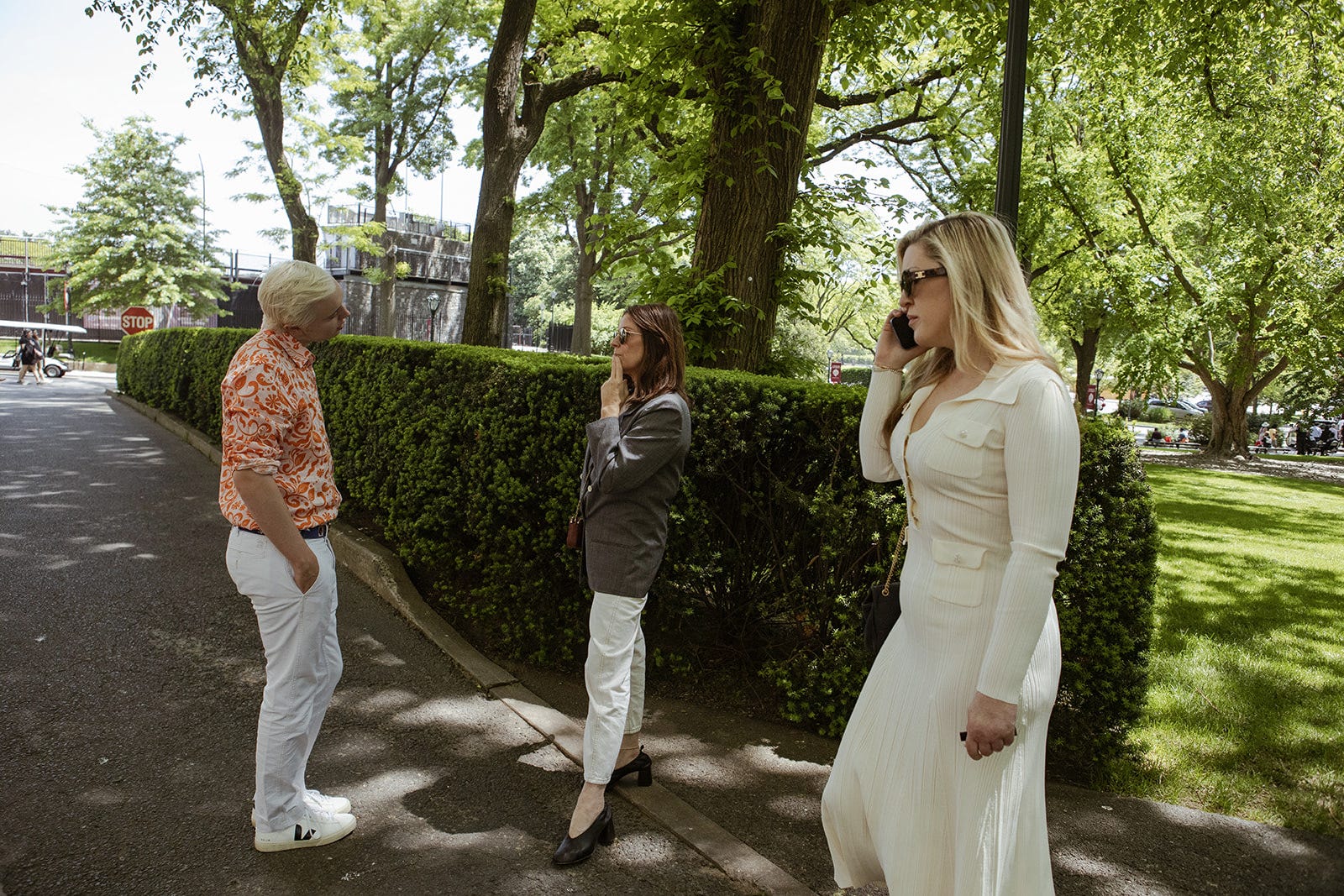
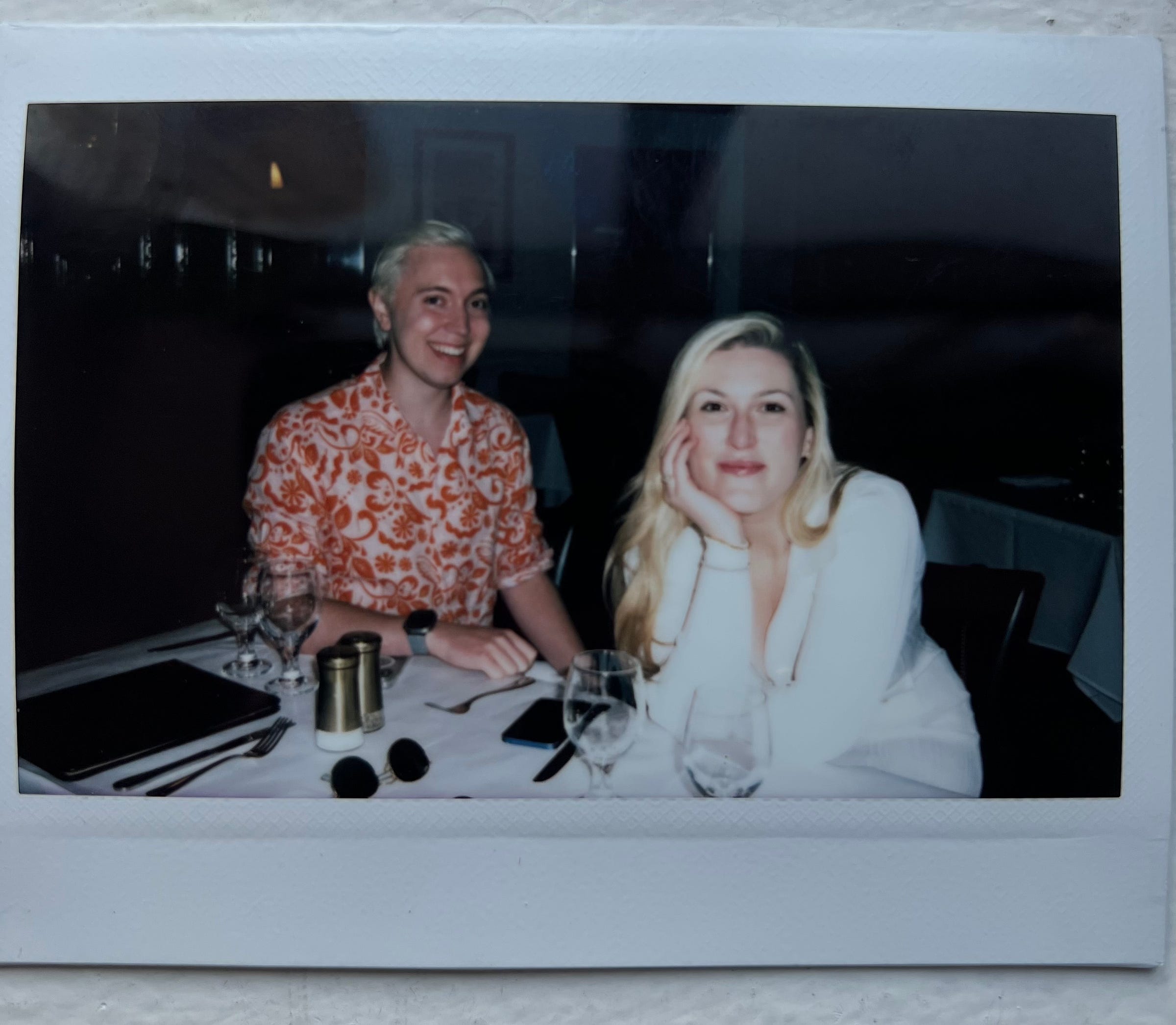
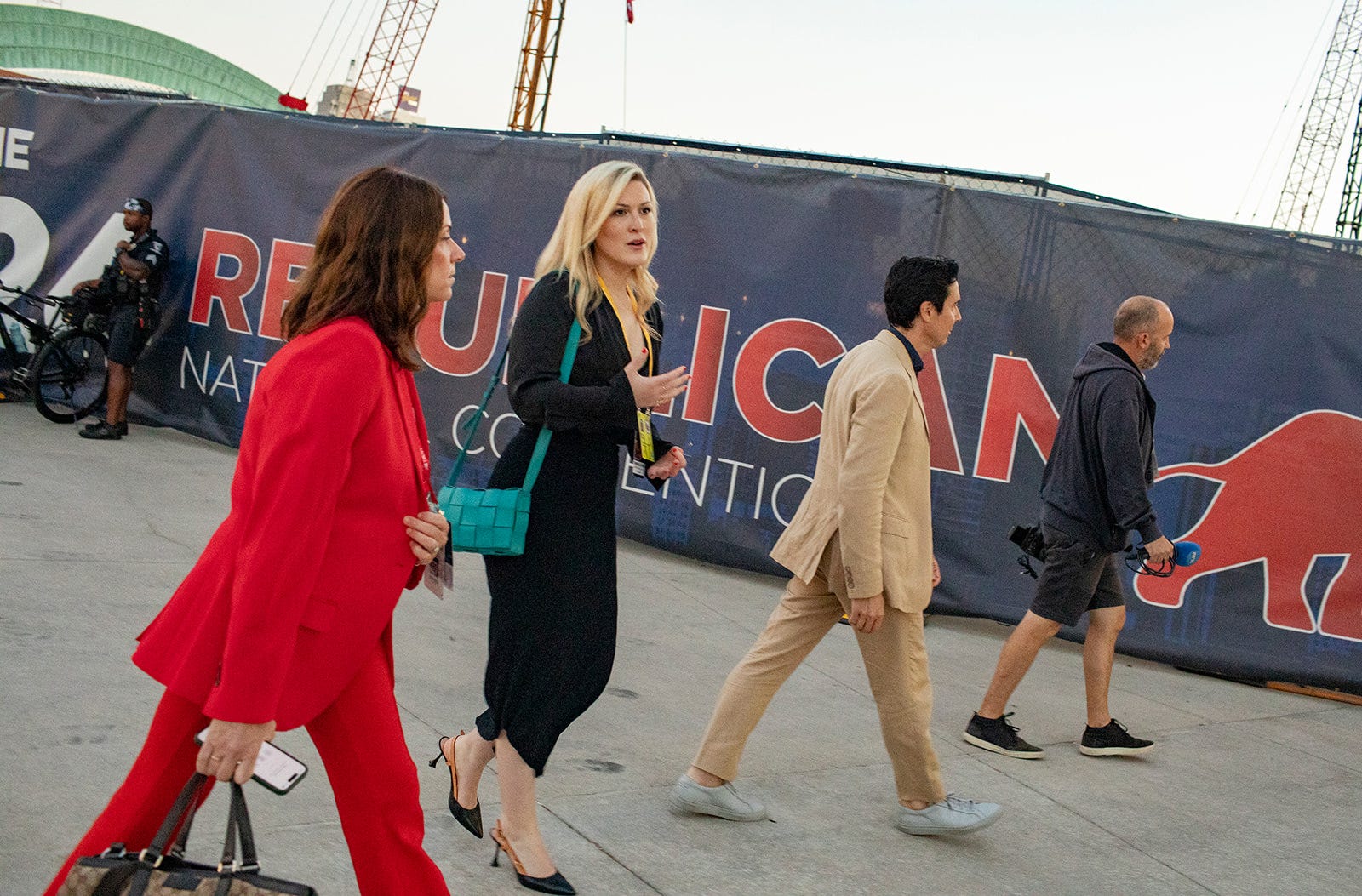
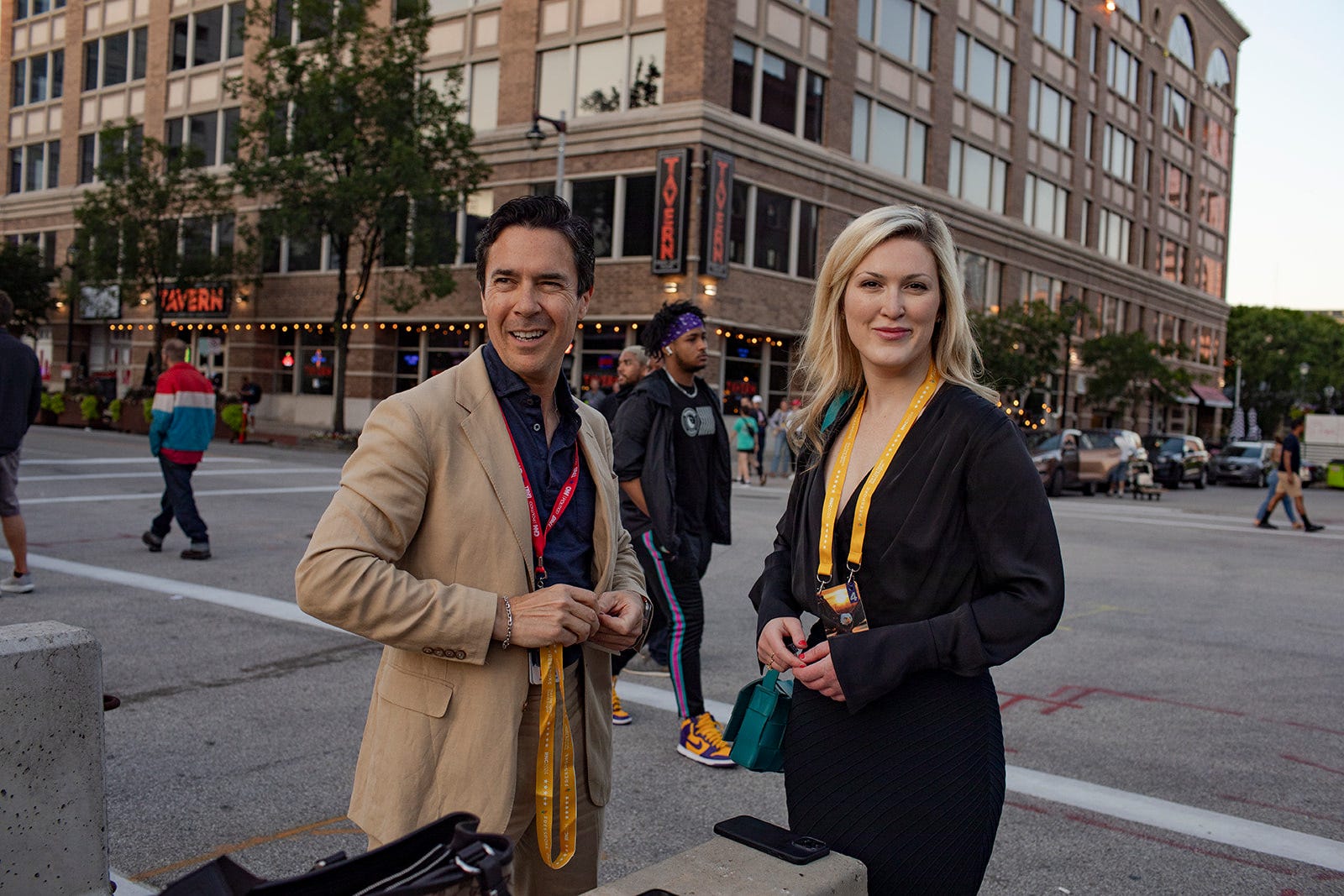
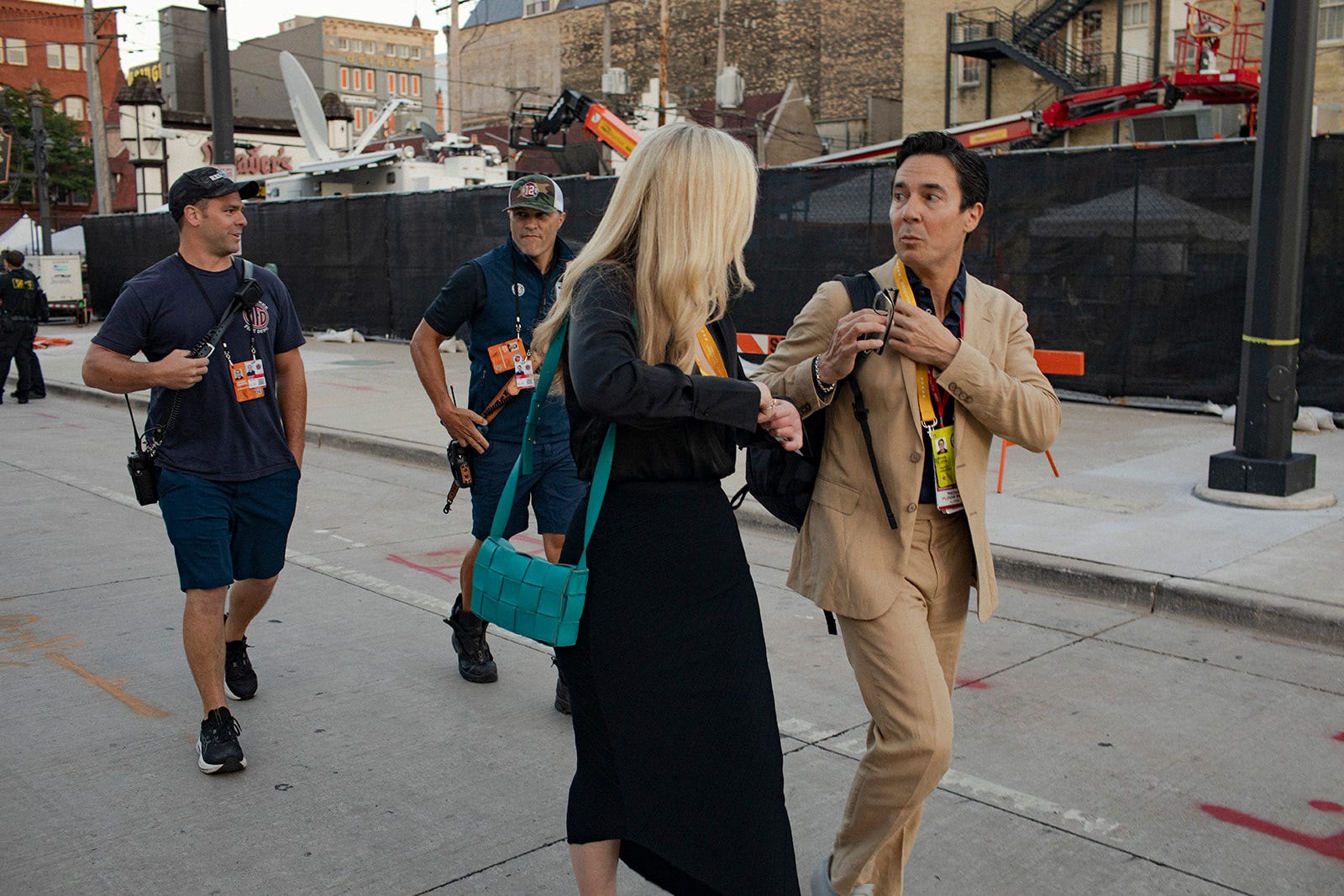
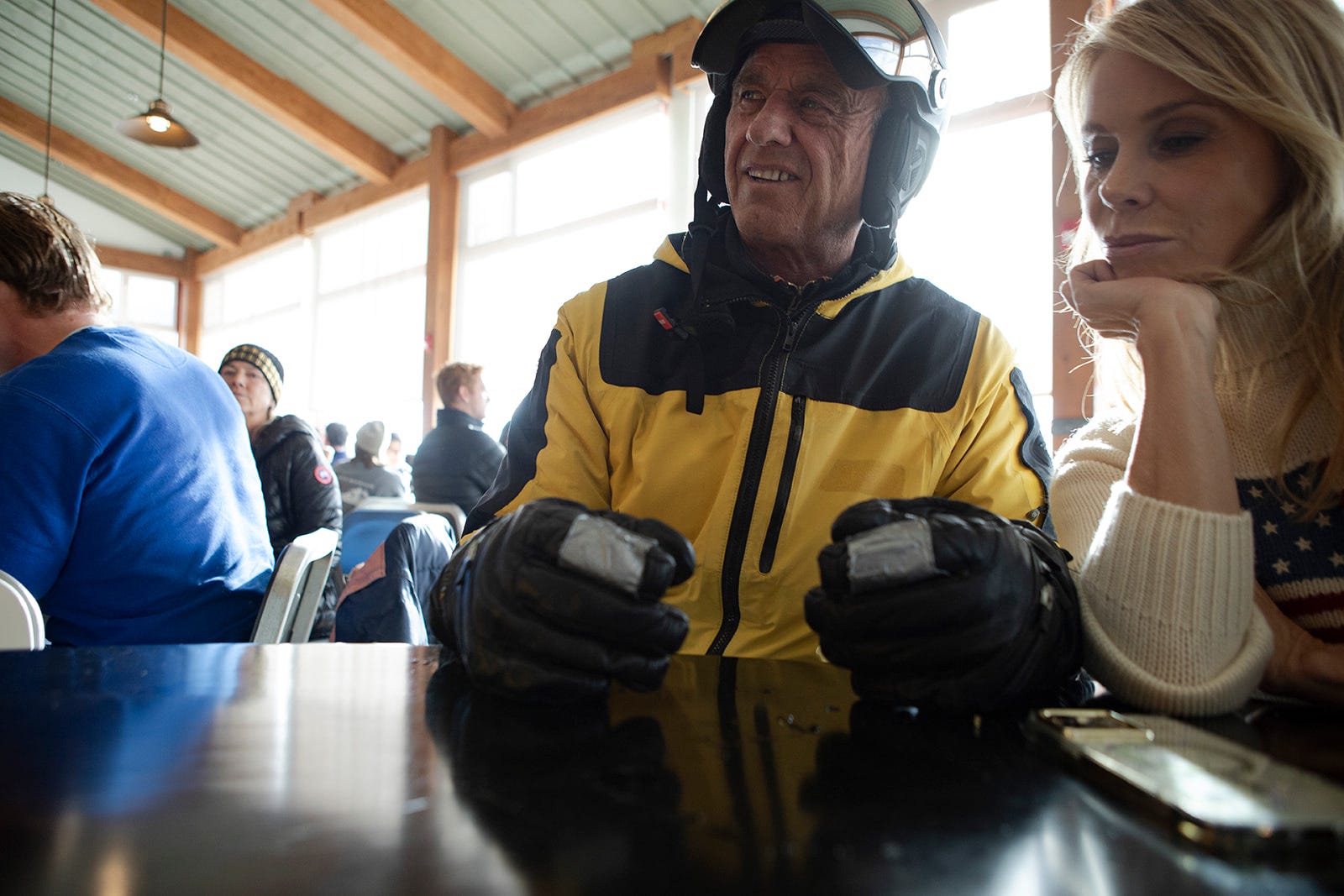
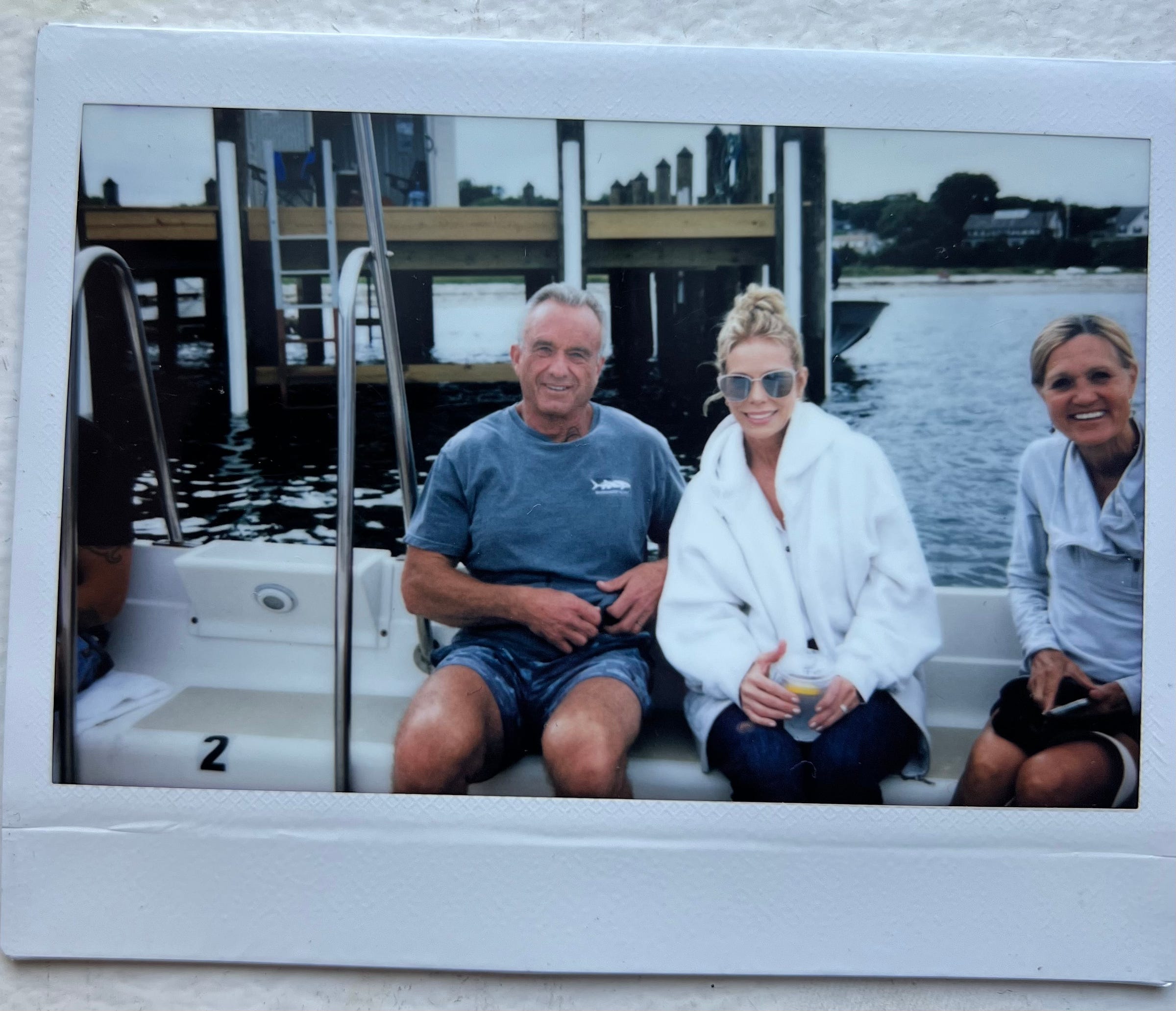
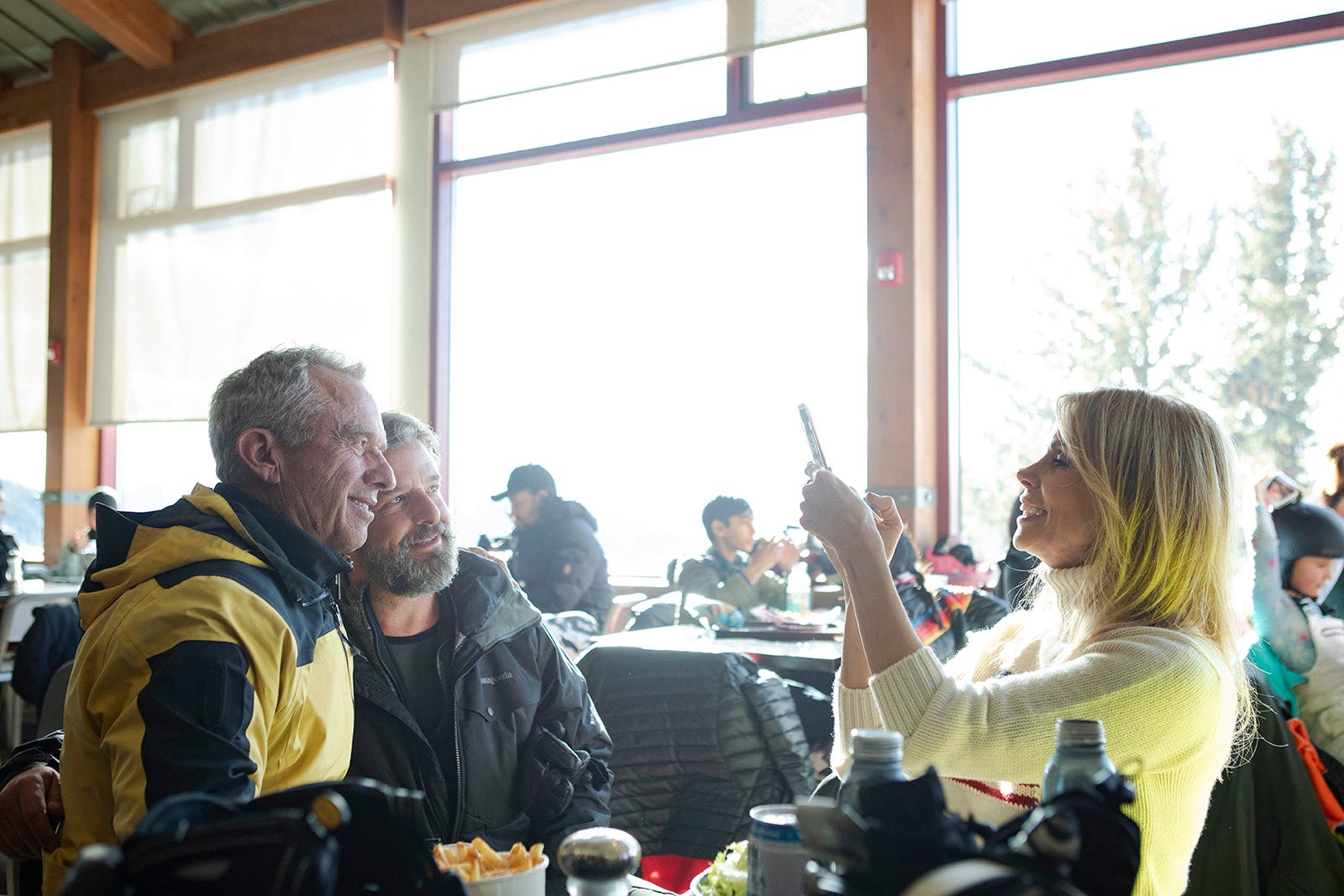
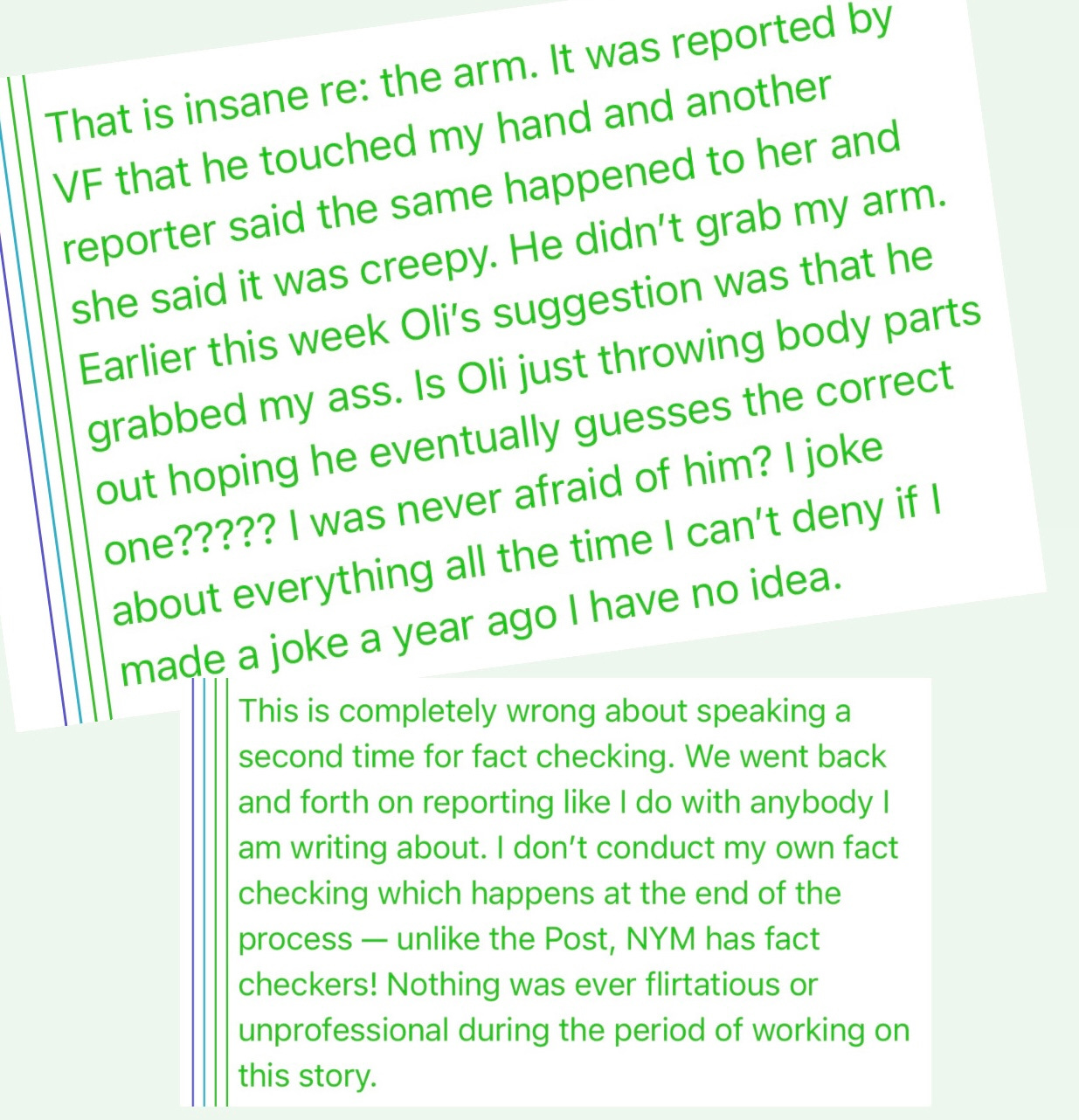
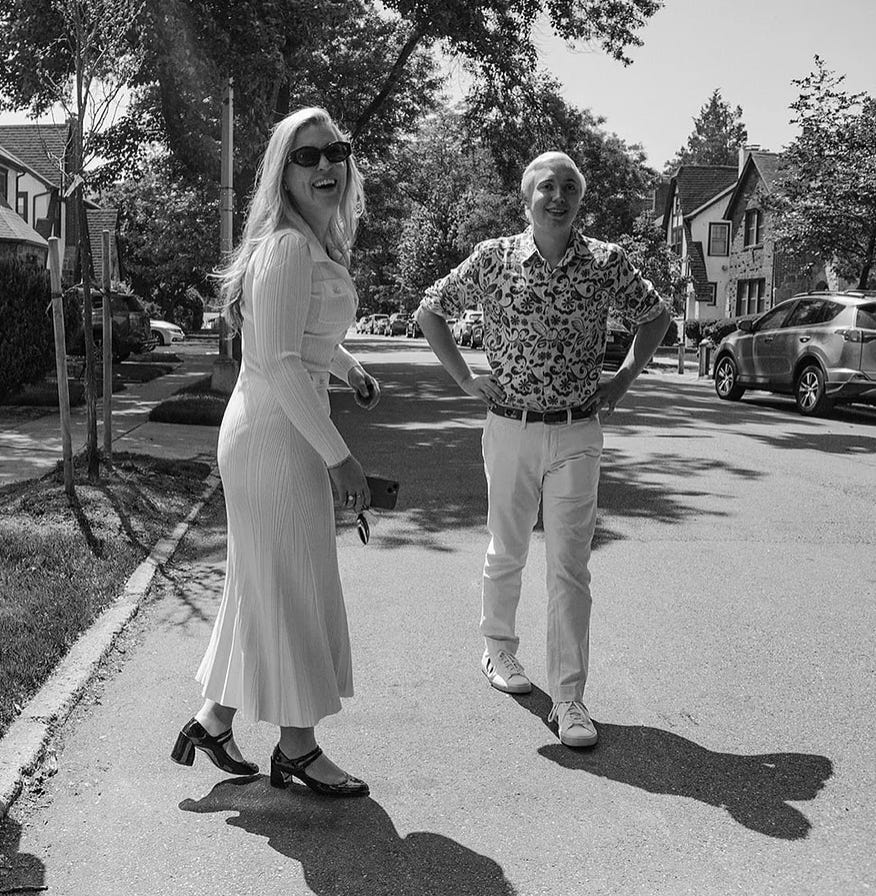
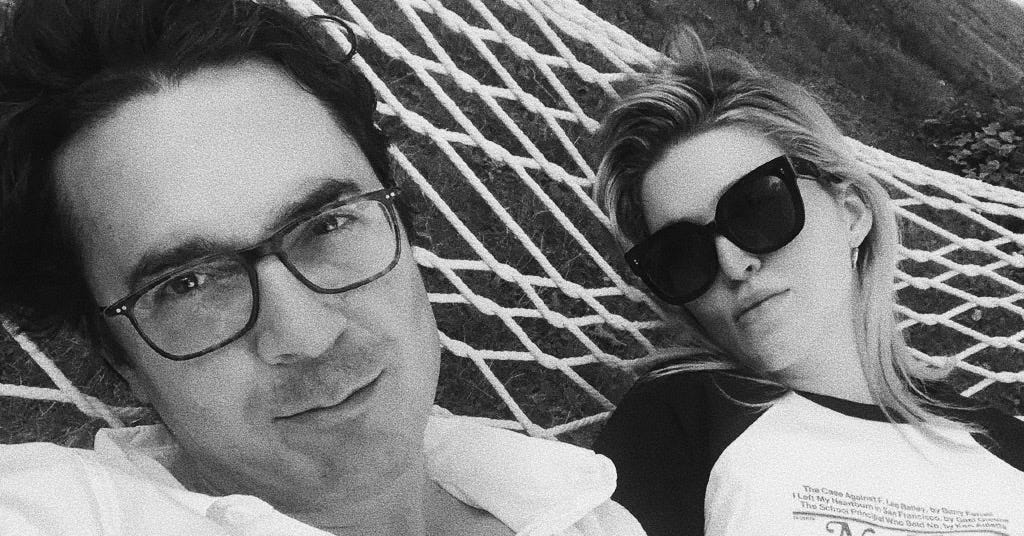
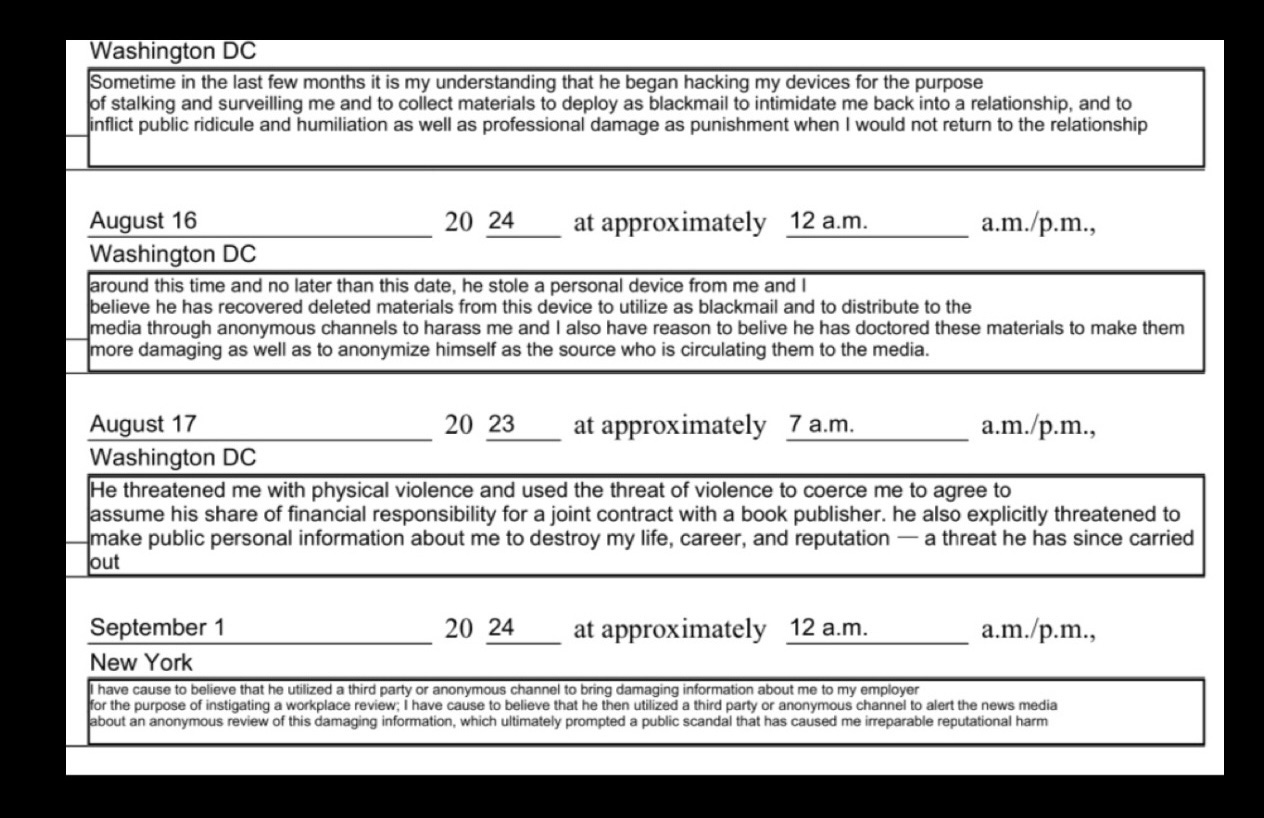
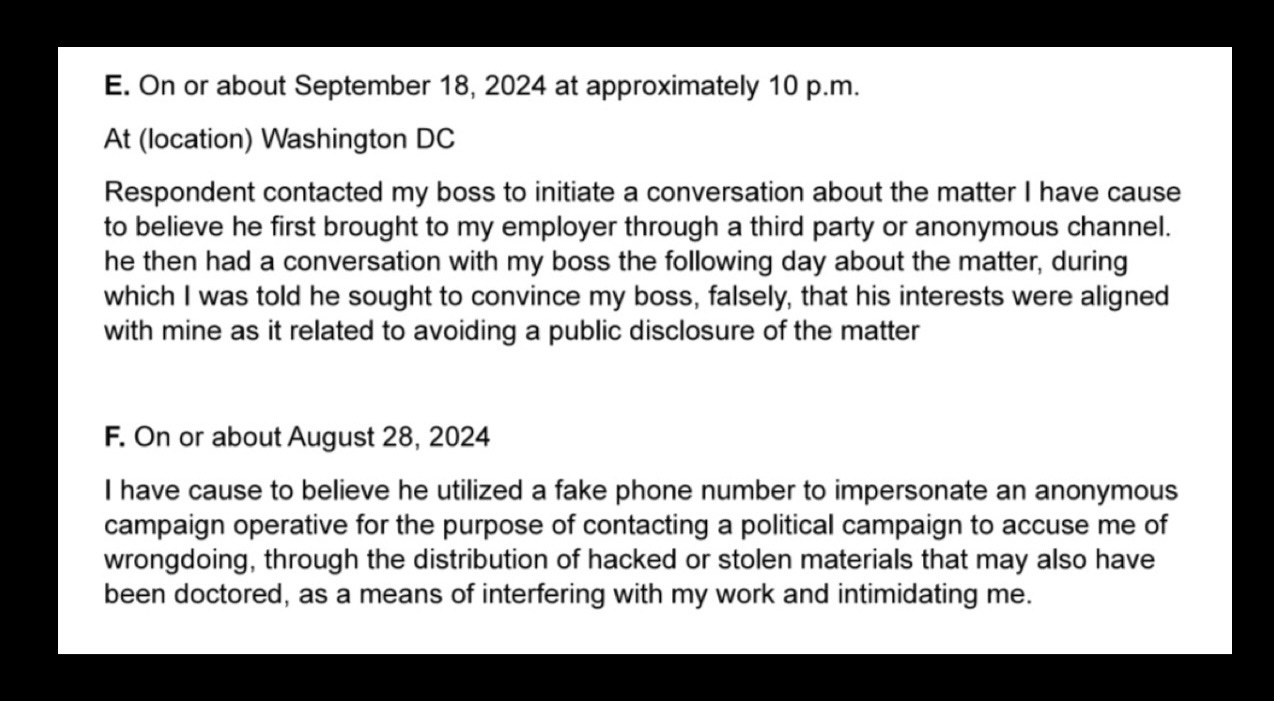


Why does Nuzzi give me Gone Girl vibes?
Also, Mike is your secret weapon.
This is insane. It’s like that life long friend that is the worst person you know but you can’t quite get rid of them.
So did she actually send naked photos? Did RFK respond to her?
At the end of the day it’s hard to remember the human side of people especially Kennedy’s - his son filming the convo with Trump to Cheryl not willing to give up Hollywood to RFK trusting the the wrong journalist. Somewhere in his ego he wanted vindication for all the things they have written about him. I can only imagine the disappointed when he realized yet another betrayal.
I don’t really see Olivia much different than Kamala actually. I’m disgusted by the fact that some women exploit themselves, using their bodies to get ahead, and then claim to be feminists when it's convenient. Meanwhile, women like so many that we know but are rarely noticed, who refuse to play that game, are often labeled as 'anti-feminist' or 'conservative' simply because they uphold their dignity. The problem isn’t just misogyny from men—it’s the hypocrisy of women who claim empowerment while manipulating the very system they claim to fight against. What frustrates me even more is that the real victims—the women who don’t exploit themselves—are rarely acknowledged in these conversations.